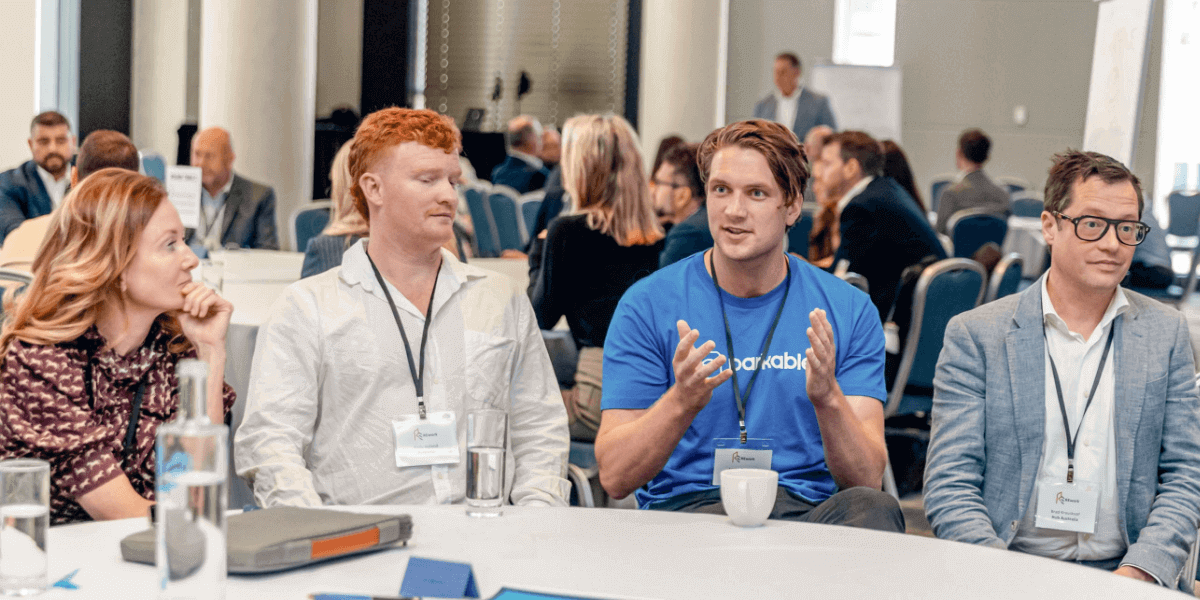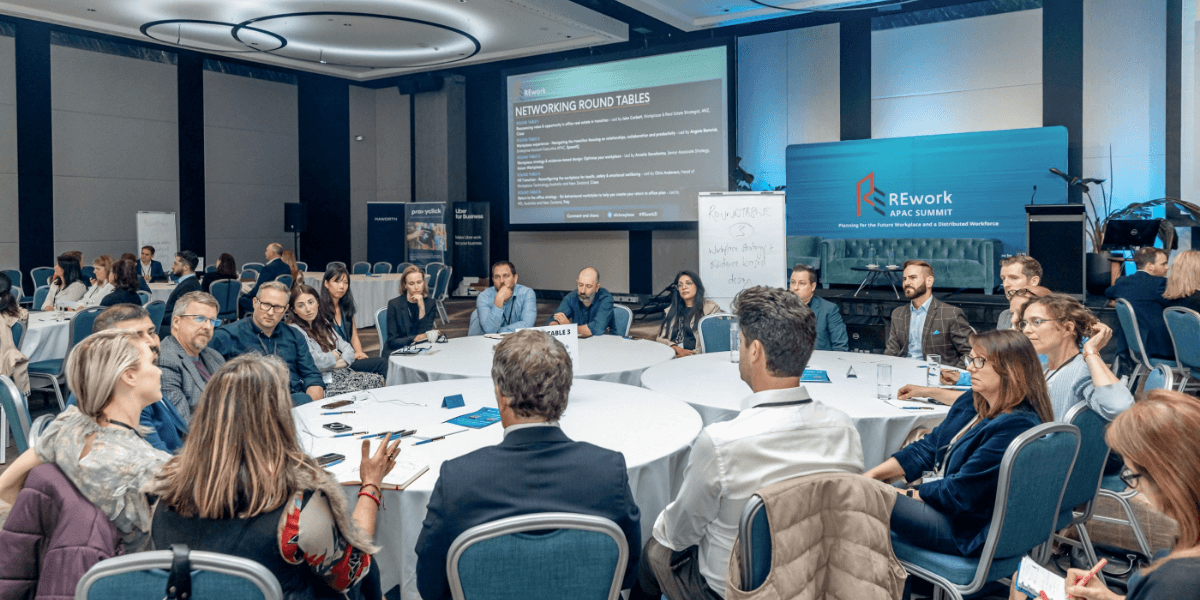5 things we learnt at the REwork APAC Summit

In late November, our enterprise solutions manager Angus Raiman attended the REwork APAC Summit in Sydney. The Summit examined how Covid has transformed the workplace, and how work culture, employee experience, and office purpose and function can be successfully reimagined going forward.
REwork brought together workspace designers, human resource and people experts, and innovators from all over the world. We certainly came out with a richer understanding of how work will look in the future, and want to share those insights with you!
Here are Angus’ top takeaways.
1. “The Great Resignation”
It’s been all over the news - people are leaving their jobs at pace. Some studies estimate that 40% of employees will change their job within the next 12 months, as some workplaces rise to the occasion of changing needs, and others… don’t.
For those companies fully embracing flexibility and employee experience, this will be a great time to secure new talent. For others, this may be a painful and expensive way to learn that the world of work really has changed.
So how do we do it right?
2. There’s no “one right way” to bring staff back to the office
We’re in new territory, and no one knows exactly how to manage the return to the office. Sure, there might be better or worse strategies, but there’s no single expert out there who can give you a quick five-step process to ensure success. This means it’s time to embrace experimentation.
What does ‘experimentation’ actually mean? When it comes to your broad work strategy, it means simply listening to your employees, trying an approach that best accommodates your business, your staff, and your customers, and then continuing to listen and adapt as you go. This isn’t a ‘one and done’ situation - try something, assess its effectiveness, and remain flexible to change.

3. Experimentation is also about trying new technologies
Another way that companies are experimenting is by stepping away from old ways of doing things, and embracing property technology. We’ve seen a four-fold increase in technology adoption within the Prop Tech sector since Covid, as employers focus on bringing their workforce and office into the new world of work.
There’s even a new software product category dubbed ‘workplace as a service’ or WaaS, which has emerged to accommodate flexible working. This includes anything from cybersecurity, to cloud services, insurance, and data management, and it generally removes administrative work from companies so they can focus on more important tasks.
4. Some office time is important for company culture
While the workspace is undoubtedly changing, the office remains an important hub for cultivating company culture.
Recently, PwC conducted a survey of company executives and directors, and found that culture is seen as a huge component of business success over the pandemic. Plus, 62% believe that for an organisation to maintain its culture, employees need to be in the office for between two and four days each week.
This aligns with a CBRE survey finding, where 38% of respondents said that the physical office will remain as important as pre-pandemic.
5. The commute is a big part of the problem
A whitepaper by IWG called ‘The 15 Minute Commute’ identifies the commute to work as the biggest pain point for staff not wanting to return to the office.
This is, of course, where Angus plugged Parkable - a staff parking management solution that makes the car park bookable, and shares space fairly among teams. Before Parkable, just 31% of employees say they have a positive commute, while with Parkable, that number more than doubles to 70%. If the commute is a teething issue for returning to the office for your staff, Parkable can certainly help!
Suggested articles
Lack of staff parking is a major bone of contention. Time wasted cruising for parking, and earlier starts by employees racing to win limited parking, take their toll on worker wellbeing. This is even more pressing with flexible working.
Seattle landlords are in a high-stakes battle for tenants and every advantage matters.
With downtown office vacancy topping 32%, owners are pouring millions into rooftop terraces and high-end lobbies. But many are missing one of the most powerful (and profitable) levers hiding in plain sight: the parking garage.
In a city shaped by hybrid work and long commutes, parking has become a top-two tenant priority and a quiet driver of NOI. This article breaks down how forward-thinking landlords are turning empty bays into booked spots, revenue, and tenant loyalty -without building a single new space.
Hybrid work broke the old parking playbook. Now, forward-thinking Chicago landlords are reimagining parking—not as a sunk cost, but as a strategic lever for NOI, tenant satisfaction, and operational efficiency. Discover how smarter parking is turning underused space into asset performance, and why this quiet shift is gaining serious traction.
Solve your parking problems
If you have workplace parking spots and want to...
- Improve employee parking experiences
- Reduce car park admin
- Make better use of your space
- Align your parking with a flexible working culture
- Implement hardware solutions
...feel free to get in touch!
 Blog
Blog